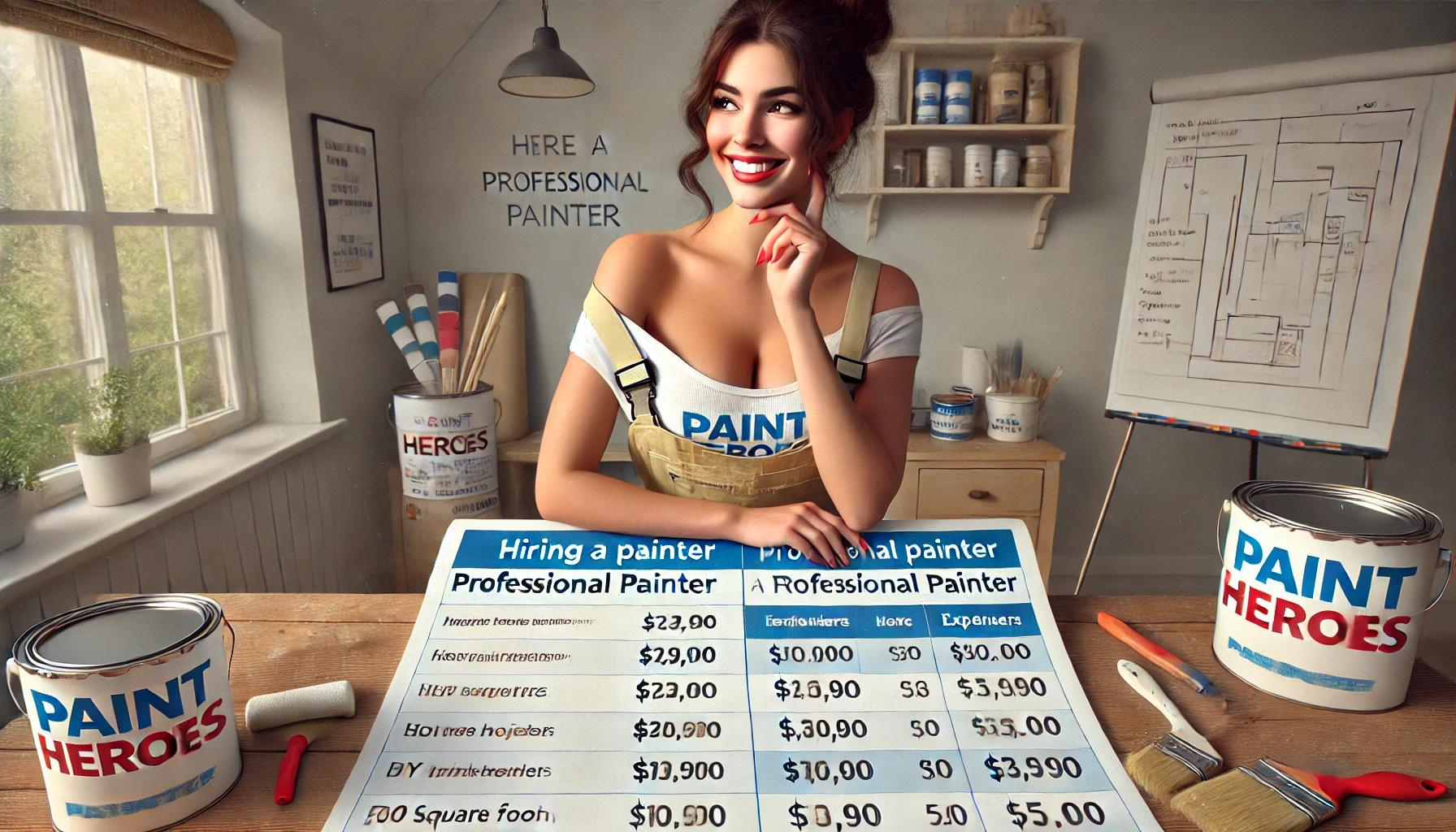Is It Cheaper To Hire A Painter Or Do It Yourself
Assessing The Costs Of Painting Your Home Diy Vs. Professional Services
Understanding The Financial And Practical Aspects Of Home Painting
The Investment in Professional Service
When it comes time to refresh your home's walls, the dilemma of choosing between DIY and hiring a professional painter can be challenging. Through my own experiences and detailed research, I've gathered some comprehensive insights to guide you.
Hiring a professional service can seem like the pricier option initially. These experts bring a wealth of experience, efficiency, and specialized equipment that streamline the entire painting process. They handle everything from surface preparation to the final touches, ensuring a flawless finish. The cost often includes premium paint, skilled labor, and the peace of mind that the job will be completed without any effort on your part. Prices will vary based on your home's area, the paint quality, and the project's complexity. For straightforward projects, it might seem costly, but for intricate jobs with high ceilings or detailed trim work, the investment can be incredibly worthwhile.
The Real Cost of DIY Painting
On the flip side, painting your home yourself might appear cost-effective. The main expenses here include purchasing paint, brushes, rollers, and protective gear. You have complete control over the timeline and the choice of materials, potentially reducing costs. However, the DIY route demands a significant time commitment and some level of skill to ensure professional-looking results. There's also the risk of errors—misjudged paint quantities, uneven application, or the wrong color choices can lead to additional costs and time to rectify mistakes.
Last summer, when I tackled painting my kitchen, I carefully selected tools and paints, thinking I'd save money. While the initial expenses were indeed lower than hiring professionals, the hours I poured into the project taught me the value of my time. The effort to achieve a smooth finish and clean lines was immense, and it took longer than anticipated, stretching over several weekends.
Deciding What's Best for Your Home
Whether it's more economical to hire a painter or do it yourself depends on various factors, including your skills, the project's complexity, and how much you value your time. If you lean towards a stress free and guaranteed high-quality outcome, opting for professional services might be a better choice. For those who have painting experience and spare time, DIY could be more budget-friendly and fulfilling.
While DIY projects can offer savings and a sense of accomplishment, professional painting services provide expertise and efficiency that can be worth the extra expense. Assessing your situation carefully will help you make the best decision for your home and wallet.
Deciding Whether To Hire A Painter Or Paint Your Home Yourself
Exploring Cost-Effectiveness In Home Painting Choices
Assessing Costs: Professional Painters
When faced with the need to freshen up your home's appearance with a new coat of paint, one major decision is whether hiring a professional painter is more budget-friendly than taking on the job yourself. I have navigated this choice several times and hope to offer insights that simplify your decision-making process.
Firstly, hiring a professional painter does come with its advantages. These experts have the tools, skills, and experience to complete the job efficiently and with high-quality results. The cost of hiring a painter generally includes labor, materials, and sometimes even post-job cleanup, making it a stress free option. The expense, however, can vary widely depending on the size of your home and the quality of materials used. On average, professional services can range from a few hundred to several thousand dollars, influenced by factors such as the complexity of your spaces and the type of paint selected.
Assessing Costs: DIY Painting
Alternatively, opting to paint your home yourself might seem like a cost-saving move at first glance. The primary expenses here are paint and supplies like brushes, rollers, and drop cloths. A significant advantage is the control over materials and timing, which allows you to spread out the purchase of supplies to better fit your budget. However, this choice requires a substantial time investment and a bit of skill to achieve professional-looking results. Additionally, the hidden costs of mistakes and potential do-overs can add up.
When I painted my living room last year, I chose to buy high-quality paint and tools, believing I'd save money in the long run. Indeed, the upfront cost was lower than a professional quote. However, the time it took from my weekends was substantial, and there was a learning curve to achieving the smooth, even finish I desired.
Making the Best Choice for Your Home
Ultimately, whether it's cheaper to hire a painter or do it yourself depends on several personal factors. If you value your time and desire a stress-free process, hiring a professional might be worth the extra cost. For those who enjoy hands-on projects and have the time to dedicate, DIY painting can be a rewarding and potentially less expensive route.
Whatever you decide, ensure you weigh both the immediate and long-term costs and benefits. A fresh coat of paint can modify your space, and choosing the right approach to it can be just as transformative for your budget and home satisfaction.


